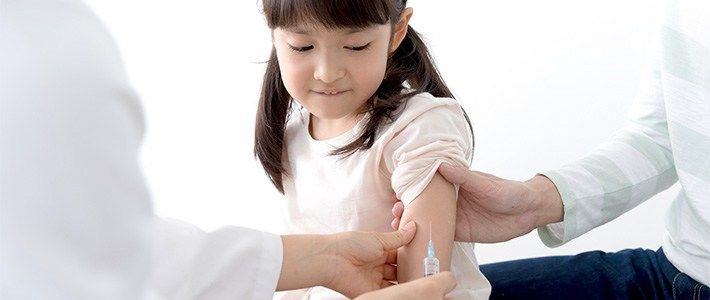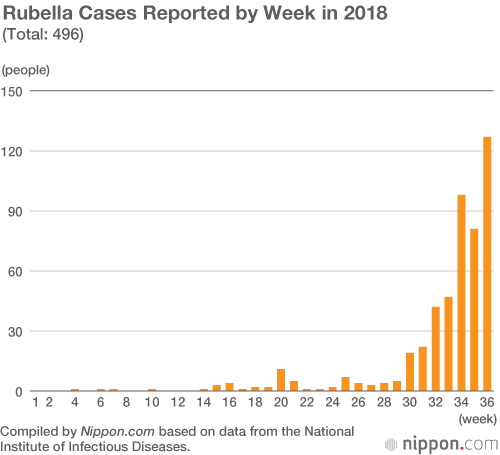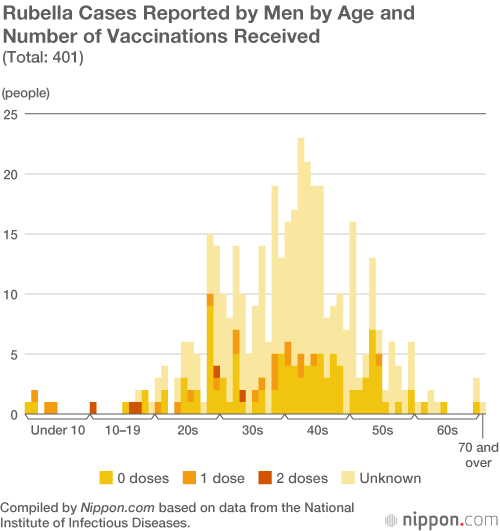
Rubella Spreading in Tokyo
Society- English
- 日本語
- 简体字
- 繁體字
- Français
- Español
- العربية
- Русский
Japan has recorded a fivefold increase in rubella cases in 2018 so far, compared with the whole of 2017. The National Institute of Infectious Diseases announced that there has been a total of 496 rubella cases in 2018 (as of September 9). Since August, the number of patients has soared and 127 cases were reported in week 36 (September 3–9) alone. The majority have occurred in Tokyo, and neighboring Kanagawa and Chiba Prefectures.

Adults accounted for 94% or 468 cases, affecting 401 men and 95 women. Men from their thirties to their fifties were particularly common.

From August 1977 to March 1995, only junior high school girls were given a 1-dose group vaccination at schools. Boys began receiving rubella vaccinations from April 1995, meaning that many men born before April 1, 1979, (over 39 years old as of September 2018) have not been inoculated.
Even after April 1995, the target age range of recipients changed along with a shift from group immunizations to individual vaccination at private health centers, so vaccination coverage was incomplete. Some of those people born from April 2, 1979, onwards have not been vaccinated and approximately 20% of men in their late thirties or older do not have rubella antibodies. Due to changes in the vaccination system, there are very few rubella patients in their early twenties or younger as they received the vaccine in two doses when they were infants.
Rubella is a viral infection with a cough, fever, and rash. It does not have severe symptoms and sometimes even patients do not realize they have it. However, for women who become infected with the rubella virus in the first 20 weeks of their pregnancy, their fetus is also infected, which may lead to the birth of babies with congenital rubella syndrome and cause severe birth defects such as heart disease or deafness.
The National Institute of Infectious Diseases is particularly urging men from their thirties to fifties who have never contracted rubella and have not been vaccinated (or have no memory of it) to be promptly vaccinated, so that they can avoid the risk of passing on the virus to pregnant women they are in contact with, including their partners and work colleagues.
The government’s aim is to eliminate congenital rubella syndrome at an early stage and eradicate rubella in Japan by 2020, when the Tokyo Olympics and Paralympics are due to be held. However, if men in their thirties and older do not get vaccinated, the virus is likely to continue spreading beyond next year. Although there are tests to confirm the presence of rubella antibodies and assistance for vaccinations is available, it varies depending on the local authority, so there is currently no comprehensive plan in place.
(Translated from Japanese. Banner photo © Pixta.)